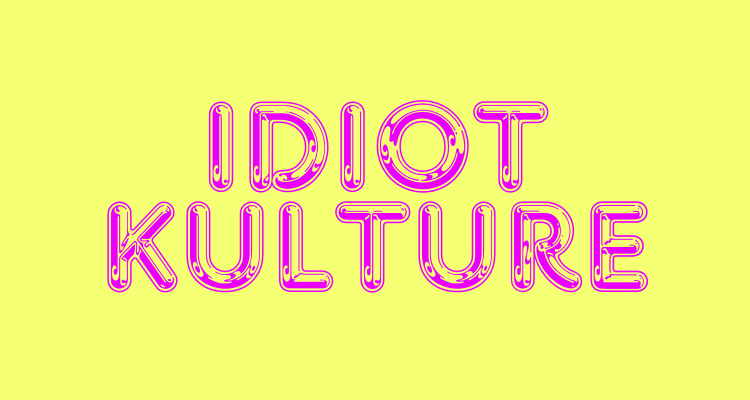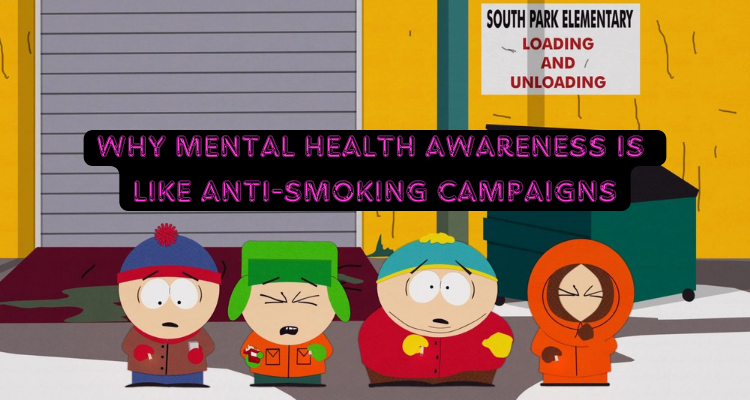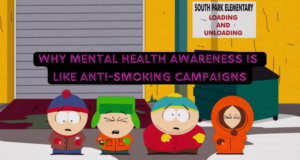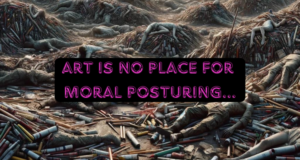There is a classic episode of South Park titled Butt Out. While the episode largely explores the theme of hypocrisy as it relates to tolerance, I’d like to focus on one particular scene from the episode.
In this scene, a group of anti-smoking campaigners conduct an assembly at South Park Elementary. The campaigners are, in every sense of the word, nerds. They sing and dance, communicating an anti-smoking message. The boys, embarrassed to even be in attendance, want to be nothing like the dorks making fools of themselves.
After one of the campaigners states, “If you don’t smoke, you can grow up to be… Just like us!”
The show then immediately cuts to the four boys smoking behind the school in an obvious attempt to avoid becoming the geeks from the assembly.
Does the popular discussion around mental health not carry a similar sentiment?
We are constantly bombarded with messages from celebrities and mainstream icons who tell us we must look after our mental health. However, for those of us who wish to maintain our independence and avoid looking like the dweebs from the South Park episode, we actually come to desire depression in an effort to avoid becoming like them.
Just the mention of the term “mental health” now makes me cringe–it’s become one of the most ubiquitous phrases in our zeitgeist.
Of course, keeping tabs on one’s mental health is of supreme importance. However, as someone who has dealt with depression and anxiety for quite a long time, the ethical questions always arise:
- Is it just to be happy in such an unjust world?
- Is the use of antidepressants a form of philosophical suicide?
- Most importantly, if I can manage my depression and anxiety, will I grow up to be a nerd equivalent to the anti-smoking campaigners from Butt Out?
Just as smoking really is quite harmful to your physical health, not managing mental health is also quite detrimental to one’s life.
This is why it’s key that independent voices–”cool” voices–also speak up about that dreaded term, mental health.
For example, the fact that Morrissey was open about his struggles with depression and experimentation with antidepressants has helped me think more deeply about mental health, and even given me the courage to try antidepressants. Though they didn’t work for him, they’ve been quite a boon for me in the last few months (otherwise, I would probably be lying in bed, not writing this article).
Other icons have also helped give me the courage to give it a go, like Conan O’Brien and Andy Richter. After all, who wouldn’t want to be more like someone as sociable and well-liked as Conan?
Likewise, we need to encourage vulnerability amongst our friends and in our relationships. My ex-girlfriend, whose opinion I value quite highly, helped me realize that I should try antidepressants, and was open about her own struggles and use of SSRIs.
Even some of my lifelong friends, though it’s a hard topic to broach, have discussed their own journeys with depression and experimentation with antidepressants, giving me a little additional courage in overcoming the ethical dilemmas I mentioned earlier.
Though it’s incredibly cliche, the will to be vulnerable about mental health is important–even if many of the voices speaking up are people we want to be nothing like.



